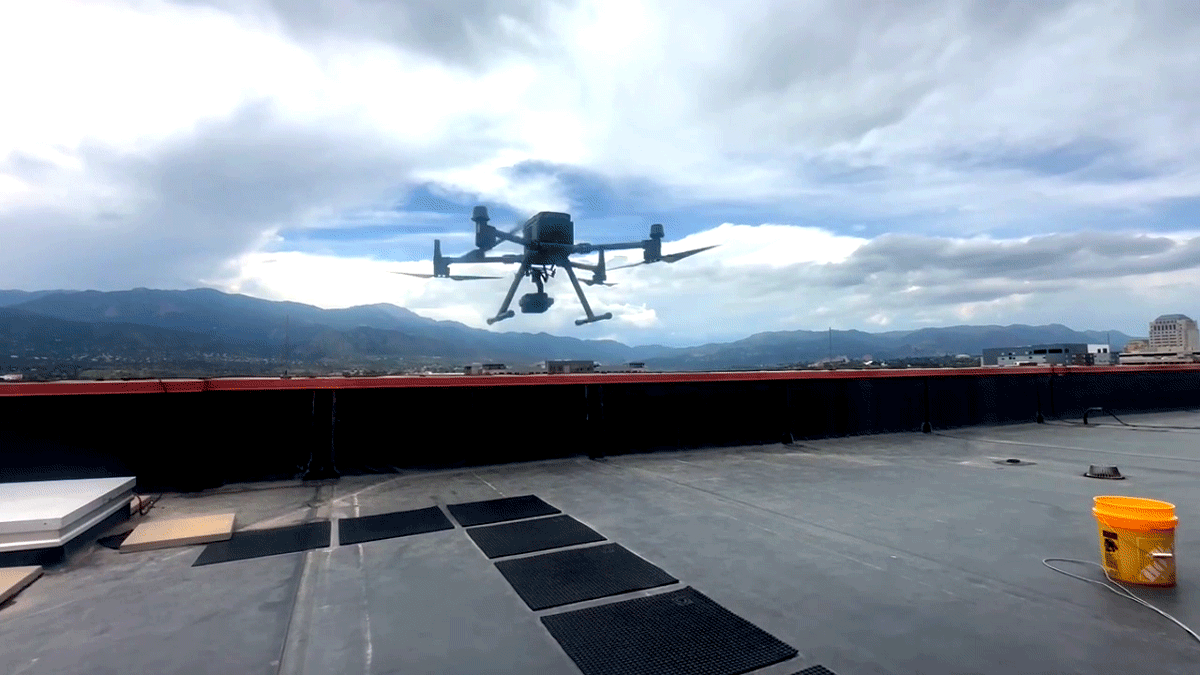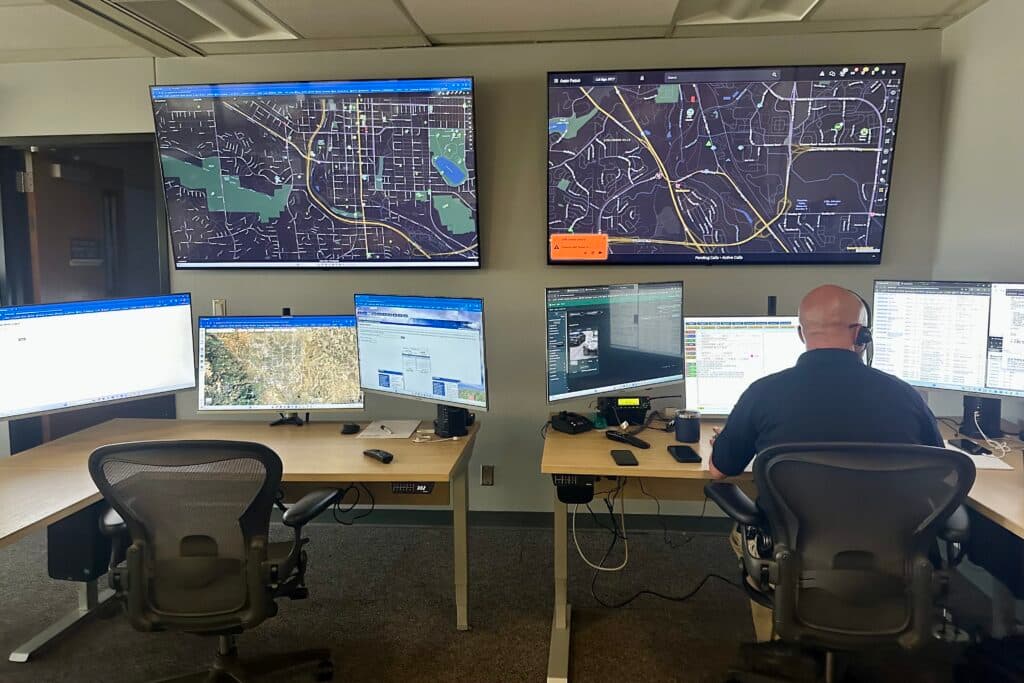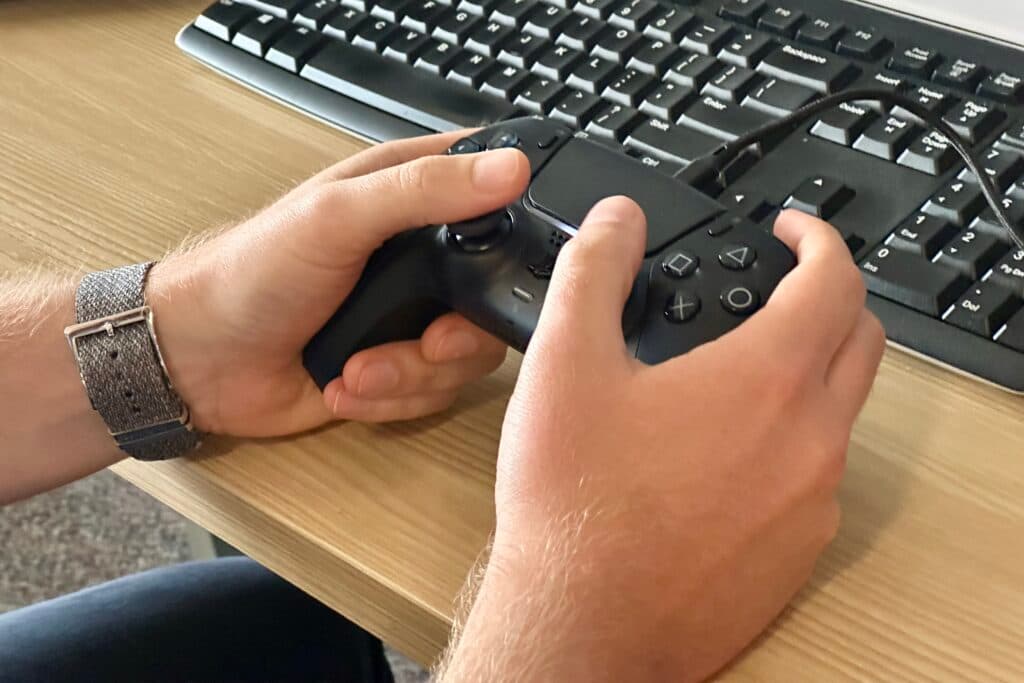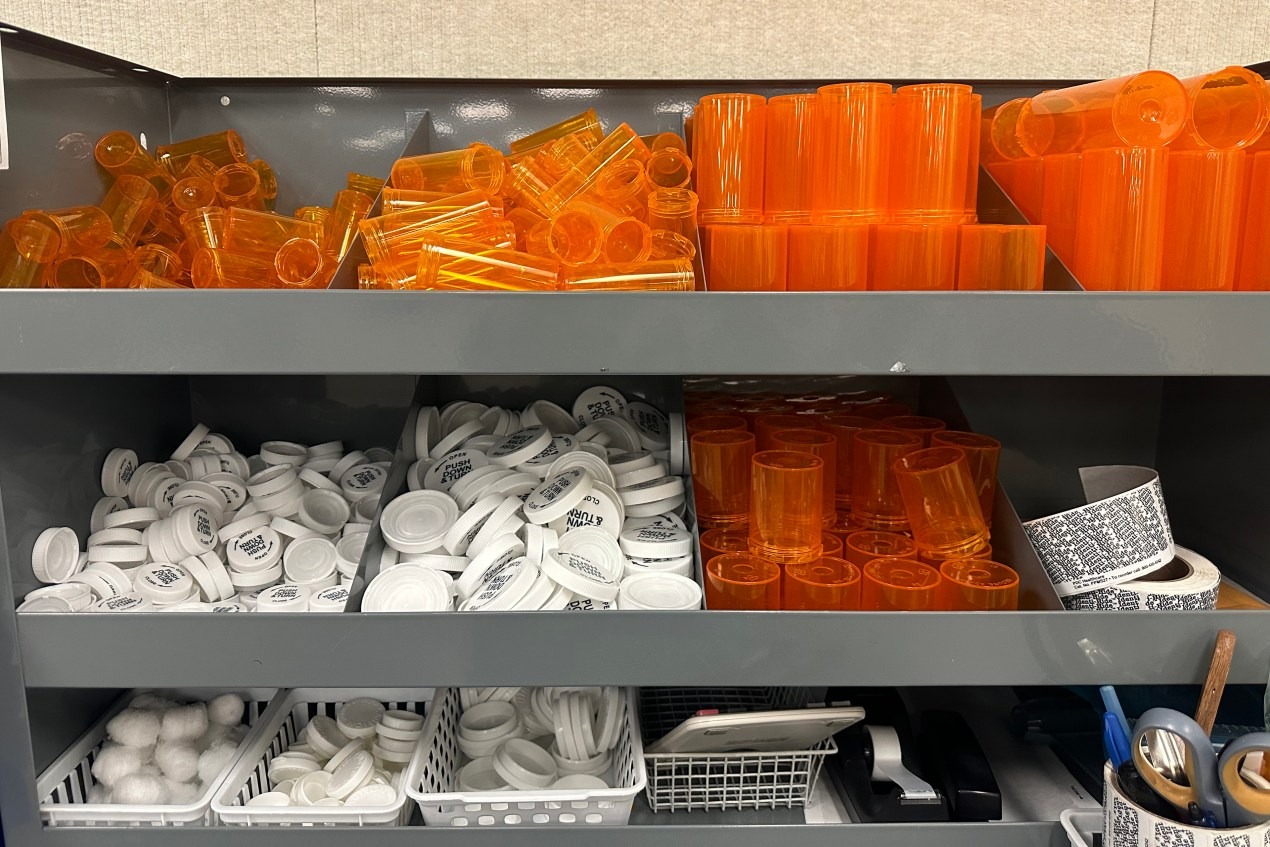
On the roof of the Colorado Springs Police Operations Center, a new member of the team waits to take flight. It’s a black drone with four propellers and a high-definition camera. The department’s license with the Federal Aviation Administration allows it to fly between 200 and 400 feet above the ground in a three-mile radius around the headquarters.
The department has been using the drone as a “first responder” for about a year, providing eyes in the sky that can buzz out to the scene of a crime often faster than responding officers. Colorado Springs is one of several cities using the high-tech tools to transform response times to certain types of incidents.
Take a recent carjacking as an example. The vehicle’s owner found his car being driven by the suspected thieves and called the police. From his seat at the police operations center, CSPD Sgt. Matt McClain was able to reach the scene with the drone first. The owner said the suspects had parked the car and were on foot, heading east on Brookside Street.
“I start flying east on Brookside. I find the suspects with the drone, and then I tell officers exactly where they are,” McClain said. “The officers were able to just walk right up to the suspects, who were almost a mile away from where the vehicle had been ditched.”
“They just walked up, took them into custody,” he said. “That’s a game changer.”
The drone program is part of the department’s Real-Time Crime Center, launched in 2024 following a pilot project from the previous summer. Located in an office connected to the department’s dispatch unit, the RTCC currently staffs a small team of detectives and analysts in rotating shifts to cover 20 hours a day, five days a week.

Screens are the most notable feature of the RTCC. Four large flat-screen panels on the wall and three expansive computer monitors at each desk. They display detailed maps, police databases and lists of available live camera feeds around the city — more than 800 cameras in all. Red light cameras, security cameras, body-worn cameras and more can be flipped through to locate or follow suspects. Residents can even sign up to upload their own home security camera footage to help solve crimes after the fact, though this option “does not give CSPD open access to your cameras or video” in real time like live traffic cameras.
“I really think that this is the way of the future,” said Grant Nelson, a detective with the RTCC. ”This is where policing is going to go.
When the list of available cameras cannot immediately capture an incident, that’s when Nelson or the other RTCC staff members dispatch the rooftop drone, flying it using a PlayStation 5 video game controller.
“I've been training for this job my whole life,” laughed Nelson when he spoke about using the controller.

Real Time Crime Centers like the one in Colorado Springs have been popping up around the country in recent years as advancements in technology and software have enabled greater synthesis of a department’s options for data collection and monitoring. The Atlas of Surveillance, a database of U.S. law enforcement surveillance technologies, counts 225 RTCCs currently operating nationwide.
Pueblo stood up its own RTCC in July of 2024. Denver’s Real Time Crime Information Center began in 2019. Additionally, Commerce City, Castle Rock and Arapahoe County have drones as first responder programs underway or in development.
Organizations like the Electronic Frontier Foundation, which also produces the Atlas of Surveillance, have voiced concerns that technologies used in RTCCs pose threats to individual privacy. Sgt. McClain said he has heard some of these objections as well, but argued the center’s technology is used for specific and targeted assistance.
“We don't have time to just be watching people who aren't breaking the law,” he said. “We can solve crime sooner; we can help keep officers safer. And that's really what the whole point of it is.”









